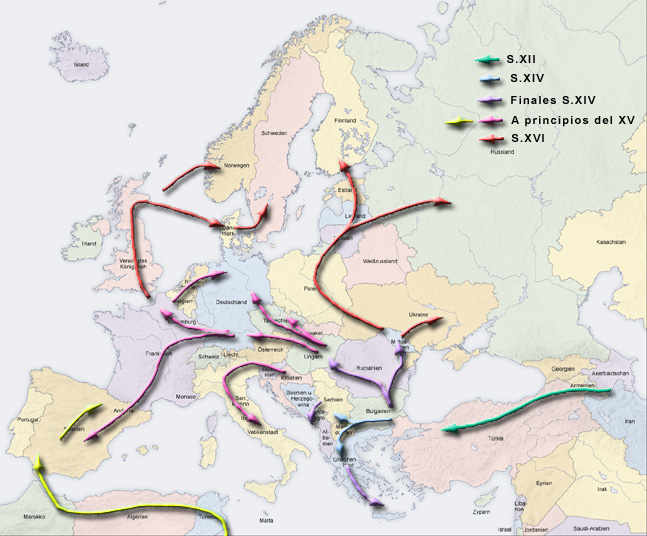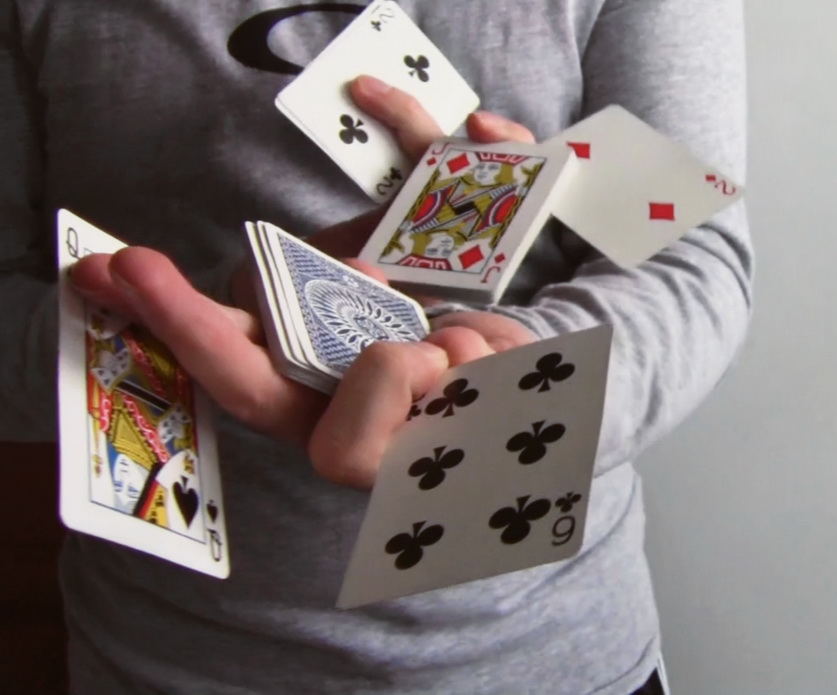|
Samuel Rid
Samuel Rid, known by the ''nom de plume'' S. R., was the author of ''The Art of Jugling or Legerdemaine'' (1612), an apparent sequel to ''Martin Markall, Beadle of the Bridewell'' (1608 or 1610), which, although sometimes attributed to Samuel Rowlands, Rid is also likely to have authored. ''Martin Markall'' recounts a history of rogues and Gypsies in England, while the second book describes the legerdemain practiced by those two loosely aligned groups. See also *King of the Gypsies The title King of the Gypsies has been claimed or given over the centuries to many different people. It is both culturally and geographically specific. It may be inherited, acquired by acclamation or action, or simply claimed. The extent of the p ... References External links * * This book contains a version of ''The Art of Juggling'' with modern spelling beginning on page 261 Year of birth missing Year of death missing 17th-century English writers 17th-century English male writers ... [...More Info...] [...Related Items...] OR: [Wikipedia] [Google] [Baidu] |
Samuel Rowlands
Samuel Rowlands (c. 1573–1630) was an English author of pamphlets in prose and verse which reflect the follies and humours of lower middle-class life in his day. He seems to have had no literary reputation at the time, but his work throws much light on the development of popular literature and social life in London, where he spent his life. His contact with the middle and lower classes of society included working in 1600–1615 for William White, and then George Loftus, booksellers, who published Rowlands's pamphlets in this time. Selected sacred and secular poems *''The Betraying of Christ'' (1598) *''The Letting of Humour's Blood in the Head-vaine'' (epigrams and satires) and ''A Mery Meetinge, or tis Mery when Knaves mete'' (1600) – the two latter being publicly burnt by order, but republished later under other names (''Humors Ordinarie'' and ''The Knave of Clubbes'') *''Greene's Ghost haunting Conie-Catchers'' (1602), which he pretended to have edited from Greene's papers, ... [...More Info...] [...Related Items...] OR: [Wikipedia] [Google] [Baidu] |
Rogue (vagrant)
Vagrancy is the condition of homelessness without regular employment or income. Vagrants (also known as bums, vagabonds, rogues, tramps or drifters) usually live in poverty and support themselves by begging, scavenging, petty theft, temporary work, or social security (where available). Historically, vagrancy in Western societies was associated with petty crime, begging and lawlessness, and punishable by law with forced labor, military service, imprisonment, or confinement to dedicated labor houses. Both ''vagrant'' and ''vagabond'' ultimately derive from the Latin word '' vagari'', meaning "to wander". The term ''vagabond'' is derived from Latin ''vagabundus''. In Middle English, ''vagabond'' originally denoted a person without a home or employment. Historical views Vagrants have been historically characterised as outsiders in settled, ordered communities: embodiments of otherness, objects of scorn or mistrust, or worthy recipients of help and charity. Some ancient sources ... [...More Info...] [...Related Items...] OR: [Wikipedia] [Google] [Baidu] |
Romanichal
Romanichal Travellers ( ; more commonly known as English Gypsies or English Travellers) are a Romani subgroup within the United Kingdom and other parts of the English-speaking world. There are an estimated 200,000 Romani in the United Kingdom; almost all live in England. Most Romanichal speak Angloromani, a mixed language that blends Romani vocabulary with English syntax. Etymology The word "Romanichal" is derived from ''Romani chal'', where ''chal'' is Angloromani for "fellow".Oxford English Dictionary Second Edition 1989, "Romany3, n. and a." Distribution Nearly all Romanichal Travellers in Britain live in England, with smaller communities in South Wales, Northeast Wales, and the Scottish Borders. The Romanichal diaspora emigrated from Great Britain to other parts of the English-speaking world. Based on some estimates, there are now more people of Romanichal descent in the United States than in Britain. They are also found in smaller numbers in South Africa, Australia, Cana ... [...More Info...] [...Related Items...] OR: [Wikipedia] [Google] [Baidu] |
Legerdemain
Sleight of hand (also known as prestidigitation or ''legerdemain'' ()) refers to fine motor skills when used by performing artists in different art forms to entertain or manipulate. It is closely associated with close-up magic, card magic, card flourishing and stealing. Because of its heavy use and practice by magicians, sleight of hand is often confused as a branch of magic; however, it is a separate genre of entertainment and many artists practice sleight of hand as an independent skill. Sleight of hand pioneers with worldwide acclaim include Dan and Dave, Ricky Jay, Derek DelGaudio, David Copperfield, Yann Frisch, Norbert Ferré, Dai Vernon, Cardini, Tony Slydini and Helder Guimarães. Etymology and history The word ''sleight'', meaning "the use of dexterity or cunning, especially so as to deceive", comes from the Old Norse. The phrase ''sleight of hand'' means "quick fingers" or "trickster fingers". Common synonyms of Latin and French include ''prestidigitation'' and ' ... [...More Info...] [...Related Items...] OR: [Wikipedia] [Google] [Baidu] |
King Of The Gypsies
The title King of the Gypsies has been claimed or given over the centuries to many different people. It is both culturally and geographically specific. It may be inherited, acquired by acclamation or action, or simply claimed. The extent of the power associated with the title varied; it might be limited to a small group in a specific place, or many people over large areas. In some cases the claim was clearly a public-relations exercise. As the term Gypsy is also used in many different ways, the ''King of the Gypsies'' may be someone with no connection with the Romani. It has also been suggested that in places where their crimes were prosecuted closely by local authorities the "King of the Gypsies" is an individual, usually of low standing, who places himself in the risky position of an ad hoc liaison between the Romani and the "gadje" (non-Romani). The arrest of such a "King" limited the criminal liability of the Romani. Bulgaria Mustafa Shibil Mustafa Shibil (killed in 1870), a ... [...More Info...] [...Related Items...] OR: [Wikipedia] [Google] [Baidu] |
Year Of Birth Missing
A year or annus is the orbital period of a planetary body, for example, the Earth, moving in its orbit around the Sun. Due to the Earth's axial tilt, the course of a year sees the passing of the seasons, marked by change in weather, the hours of daylight, and, consequently, vegetation and soil fertility. In temperate and subpolar regions around the planet, four seasons are generally recognized: spring, summer, autumn and winter. In tropical and subtropical regions, several geographical sectors do not present defined seasons; but in the seasonal tropics, the annual wet and dry seasons are recognized and tracked. A calendar year is an approximation of the number of days of the Earth's orbital period, as counted in a given calendar. The Gregorian calendar, or modern calendar, presents its calendar year to be either a common year of 365 days or a leap year of 366 days, as do the Julian calendars. For the Gregorian calendar, the average length of the calendar year (the mea ... [...More Info...] [...Related Items...] OR: [Wikipedia] [Google] [Baidu] |
Year Of Death Missing
A year or annus is the orbital period of a planetary body, for example, the Earth, moving in its orbit around the Sun. Due to the Earth's axial tilt, the course of a year sees the passing of the seasons, marked by change in weather, the hours of daylight, and, consequently, vegetation and soil fertility. In temperate and subpolar regions around the planet, four seasons are generally recognized: spring, summer, autumn and winter. In tropical and subtropical regions, several geographical sectors do not present defined seasons; but in the seasonal tropics, the annual wet and dry seasons are recognized and tracked. A calendar year is an approximation of the number of days of the Earth's orbital period, as counted in a given calendar. The Gregorian calendar, or modern calendar, presents its calendar year to be either a common year of 365 days or a leap year of 366 days, as do the Julian calendars. For the Gregorian calendar, the average length of the calendar year (the me ... [...More Info...] [...Related Items...] OR: [Wikipedia] [Google] [Baidu] |
17th-century English Writers
The 17th century lasted from January 1, 1601 ( MDCI), to December 31, 1700 ( MDCC). It falls into the early modern period of Europe and in that continent (whose impact on the world was increasing) was characterized by the Baroque cultural movement, the latter part of the Spanish Golden Age, the Dutch Golden Age, the French ''Grand Siècle'' dominated by Louis XIV, the Scientific Revolution, the world's first public company and megacorporation known as the Dutch East India Company, and according to some historians, the General Crisis. From the mid-17th century, European politics were increasingly dominated by the Kingdom of France of Louis XIV, where royal power was solidified domestically in the civil war of the Fronde. The semi-feudal territorial French nobility was weakened and subjugated to the power of an absolute monarchy through the reinvention of the Palace of Versailles from a hunting lodge to a gilded prison, in which a greatly expanded royal court could be more easily k ... [...More Info...] [...Related Items...] OR: [Wikipedia] [Google] [Baidu] |





